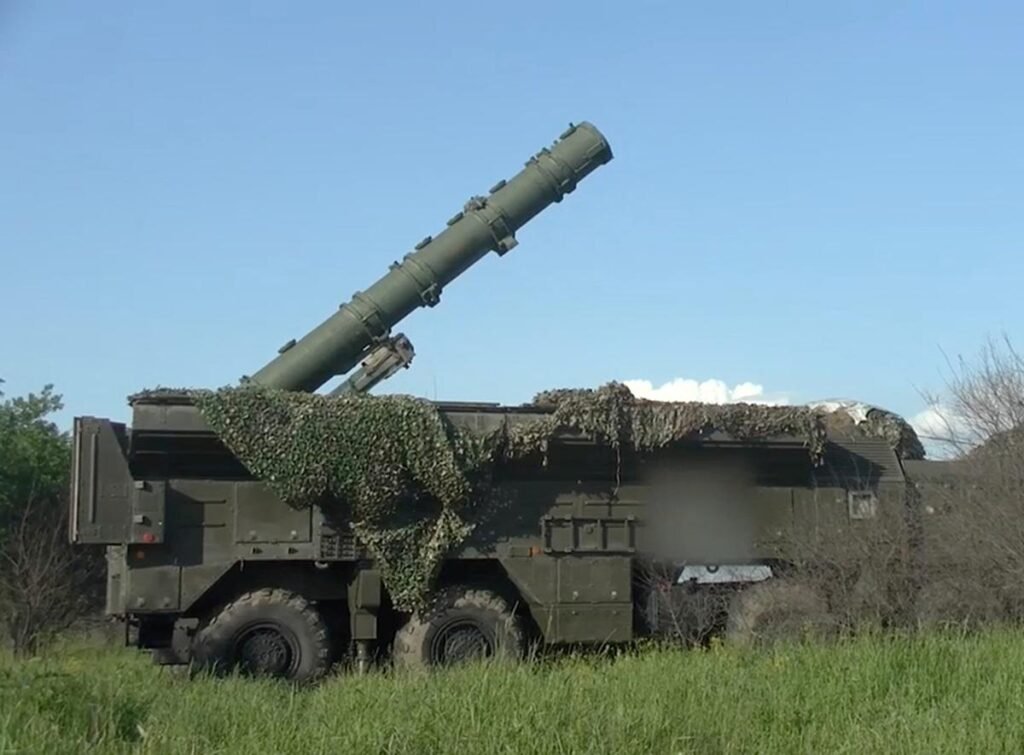Russia and Belarus Conduct Tactical Nuclear Weapons Drills Amid Tensions with West
In a provocative move amid escalating tensions with Western nations, Russia and Belarus have commenced joint tactical nuclear weapons drills. The exercises, involving both nations’ military forces, come at a critical juncture in international relations, raising concerns and garnering attention worldwide.
Details of the Drills: The drills, known as the Union Shield 2024 exercise, are taking place in Belarus. They involve simulated scenarios aimed at testing the readiness and coordination of Russian and Belarusian forces in responding to potential threats. Notably, these exercises include the deployment and strategic use of tactical nuclear weapons, marking a significant escalation in military maneuvers in the region.
International Reaction and Concerns: The military exercises have sparked widespread concern among Western nations and international observers. The United States and its allies view these drills as provocative and destabilizing, particularly amidst existing tensions over Ukraine and broader geopolitical issues. NATO has condemned the drills, citing them as a violation of international norms and heightening security risks in Europe.
Strategic Implications: From a strategic standpoint, the drills underscore Russia’s assertiveness in asserting its military capabilities and influence in Eastern Europe. By conducting such exercises, Moscow aims to demonstrate its preparedness and deterrence capabilities, sending a clear message to adversaries about its military resolve and defensive posture.
Domestic and Regional Context: Within Belarus, the drills are seen as a symbol of strengthened military cooperation with Russia amid internal political challenges and external pressure. President Alexander Lukashenko has emphasized the importance of these exercises in ensuring national security and sovereignty, framing them as essential for defense readiness.
Conclusion: As tensions persist between Russia and the West, the tactical nuclear weapons drills in Belarus serve as a stark reminder of the fragile geopolitical landscape and the potential for escalation. The international community remains vigilant, closely monitoring developments and advocating for diplomatic solutions to mitigate further risks of conflict.
Why this News is Important
Escalation of Military Tensions: The joint drills involving tactical nuclear weapons by Russia and Belarus signify a significant escalation in military tensions, particularly amidst strained relations with Western nations.
Impact on International Security: The exercises have heightened concerns globally, impacting international security dynamics and prompting reactions from major geopolitical players like NATO and the United States.
Implications for Diplomatic Relations: These drills strain diplomatic relations, posing challenges for peaceful resolutions and underscoring the urgency of diplomatic dialogue to prevent further escalation.
Regional Stability Concerns: The drills exacerbate regional stability concerns in Eastern Europe, influencing security dynamics and prompting neighboring countries to reassess their defense strategies.
Domestic and Global Repercussions: Internationally, these maneuvers evoke varied responses, impacting global perceptions of security and influencing policy decisions across multiple nations.
Historical Context
Cold War Legacy and Nuclear Posture: The current drills echo Cold War-era tensions, reflecting historical nuclear deterrence strategies and military alliances that shaped global politics.
Modern Geopolitical Dynamics: In the contemporary context, the exercises highlight evolving geopolitical dynamics, including NATO’s expansion and Russia’s assertive stance in its perceived sphere of influence.
Ukraine Conflict and Regional Instability: Amidst ongoing tensions over Ukraine, these drills occur against a backdrop of regional instability and heightened militarization, influencing broader security calculations.
Key Takeaways from “Russia and Belarus Conduct Tactical Nuclear Weapons Drills Amid Tensions with West”
| Serial Number | Key Takeaway |
|---|---|
| 1. | Joint tactical nuclear weapons drills conducted by Russia and Belarus are named Union Shield 2024. |
| 2. | The exercises aim to test readiness and coordination in responding to potential threats, including the deployment of tactical nuclear weapons. |
| 3. | Western nations, particularly NATO members, have condemned the drills as provocative and destabilizing. |
| 4. | The drills underscore Russia’s assertive military posture and its strategic intentions in Eastern Europe amidst ongoing geopolitical tensions. |
| 5. | The exercises highlight regional security concerns and the potential for escalation, emphasizing the fragile nature of current international relations. |
Important FAQs for Students from this News
1. What are tactical nuclear weapons drills?
- Tactical nuclear weapons drills involve simulated exercises to test the deployment, readiness, and coordination of military forces in handling tactical nuclear weapons.
2. Why are Russia and Belarus conducting these drills?
- Russia and Belarus are conducting these drills to demonstrate military preparedness amidst heightened tensions with Western nations, particularly over geopolitical issues in Eastern Europe.
3. What is the Union Shield 2024 exercise?
- The Union Shield 2024 exercise refers to joint military drills between Russia and Belarus aimed at testing their defense capabilities, including the deployment of tactical nuclear weapons.
4. How are these drills affecting international relations?
- These drills have strained relations between Russia, Belarus, and Western countries, raising concerns about regional stability and prompting diplomatic responses.
5. What are the implications of these drills for global security?
- The drills have significant implications for global security, intensifying debates over nuclear deterrence strategies and military alliances in Europe.
Some Important Current Affairs Links


